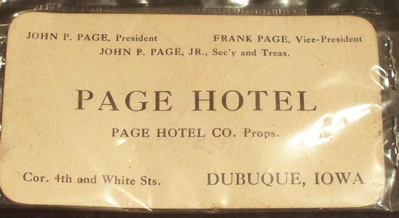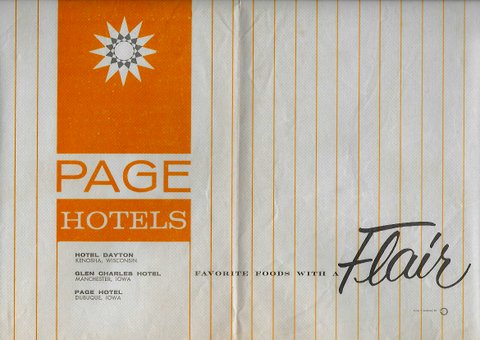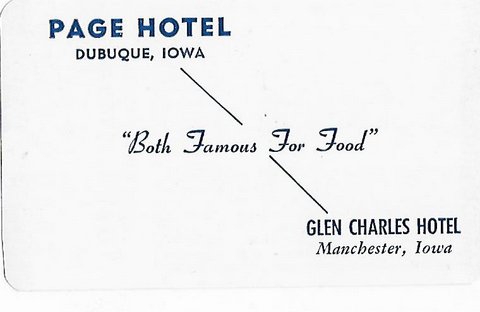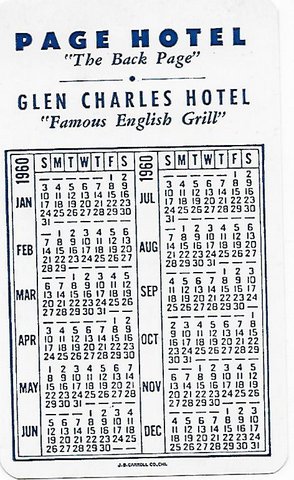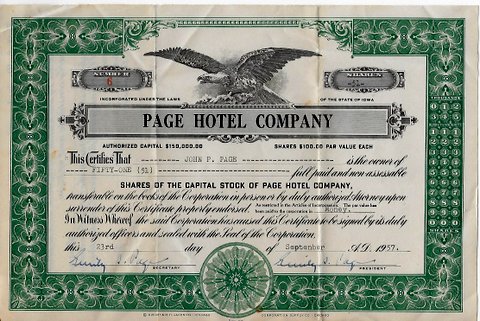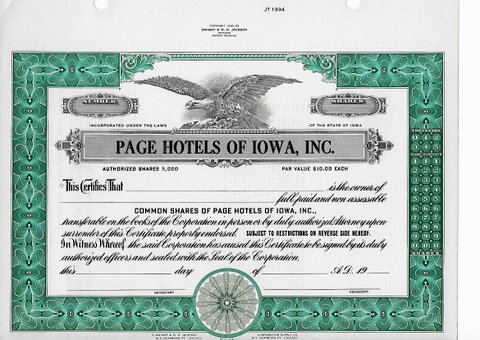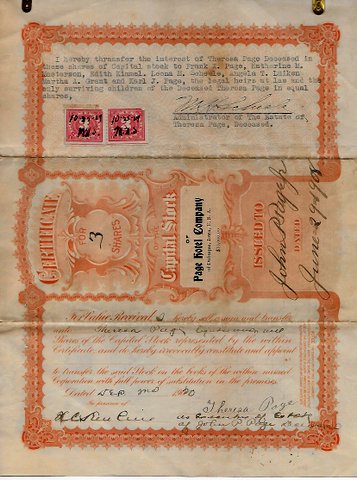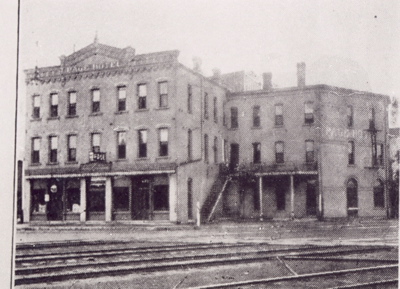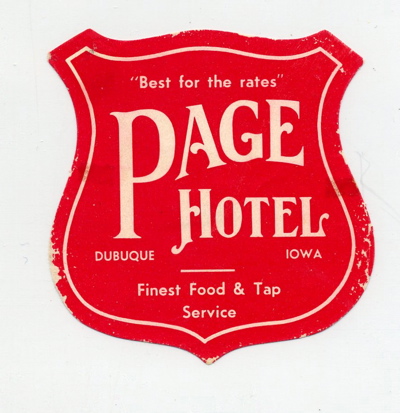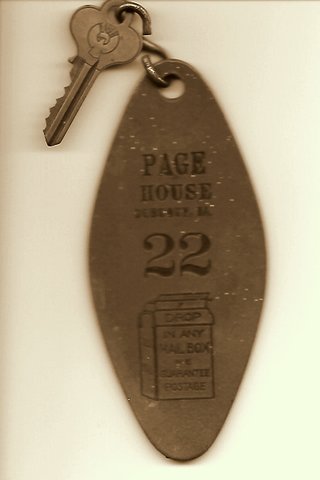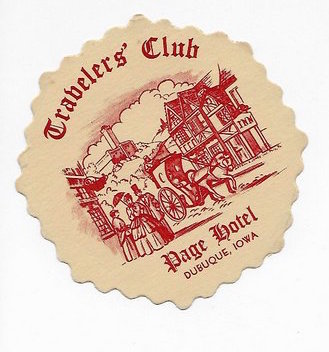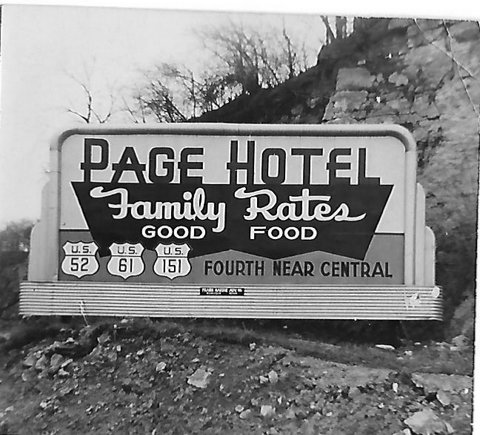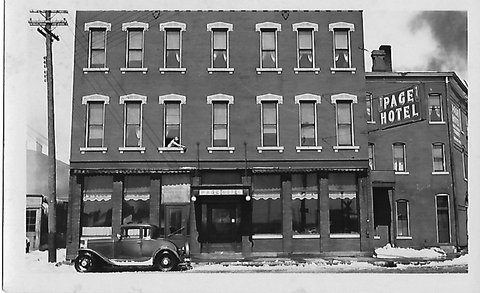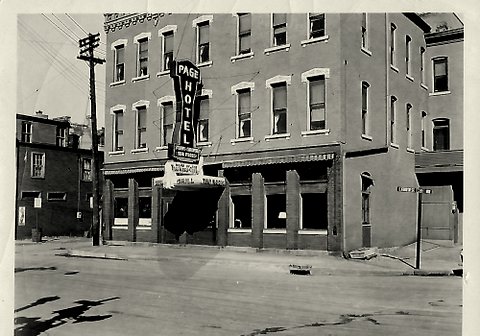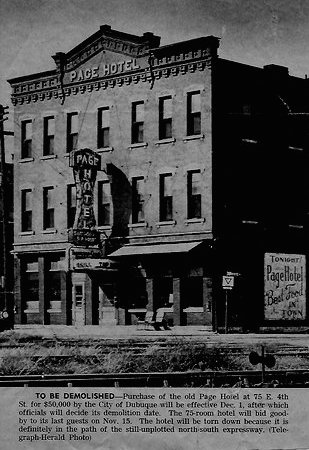Encyclopedia Dubuque
"Encyclopedia Dubuque is the online authority for all things Dubuque, written by the people who know the city best.”
Marshall Cohen—researcher and producer, CNN
Affiliated with the Local History Network of the State Historical Society of Iowa, and the Iowa Museum Association.
PAGE HOTEL: Difference between revisions
No edit summary |
No edit summary |
||
| Line 4: | Line 4: | ||
Located at Fourth and White [[STREETS]], the Page Hotel was acknowledged for its fine dining from its first day of operation. The three hundred guests were: | Located at Fourth and White [[STREETS]], the Page Hotel was acknowledged for its fine dining from its first day of operation. The three hundred guests were: | ||
marched into the most tasty dining rooms in the state and sat | marched into the most tasty dining rooms | ||
in the state and sat down to tables | |||
decorated with exotic and domestic flowers... | |||
everything the market afforded or that | |||
means could procure were served...the banquet | |||
far excelled anything of the kind that has been | |||
placed before the epicurean public before. | |||
The "Front Page" was a small restaurant and tap room where meals and beer, legal until 1963 although hard liquor was not, were served. There was originally a private social club known as The Traveler's Club. Only members with keys were admitted. In the 1950s it was opened to everyone and renamed the "Back Page." Used as the hotel's dining room, it offered lavish meals of steak or shrimp and a Chicken a la King luncheon special on Saturday. It's quality of food was said to be so good that some of Dubuque's larger hotels referred their guests to the Page for meals. A small electric train circled the walls of the "Back Page" as a Christmas and New Year's attraction. (1) The location of the hotel near railroad terminals made it a popular stop for railroad personnel. | The "Front Page" was a small restaurant and tap room where meals and beer, legal until 1963 although hard liquor was not, were served. There was originally a private social club known as The Traveler's Club. Only members with keys were admitted. In the 1950s it was opened to everyone and renamed the "Back Page." Used as the hotel's dining room, it offered lavish meals of steak or shrimp and a Chicken a la King luncheon special on Saturday. It's quality of food was said to be so good that some of Dubuque's larger hotels referred their guests to the Page for meals. A small electric train circled the walls of the "Back Page" as a Christmas and New Year's attraction. (1) The location of the hotel near railroad terminals made it a popular stop for railroad personnel. | ||
Revision as of 17:54, 24 November 2019
PAGE HOTEL. The Page Hotel was a family-operation. Plans for the hotel were accepted on February 24, 1883, by John PAGE from the famed architect, Fridolin HEER. An estimated three hundred guests attended the grand opening of the hotel on September 8, 1883. The hotel was four stories tall and offered fifty-two rooms, the Page apartment in which the Page family including nine children lived, dining room, and two tap rooms. In keeping with similar establishments of the time, the hotel in 1895 had a sign painter clearly indicate the entrances--"Saloon", "Ladies Entrance" and "Office." (1)
Located at Fourth and White STREETS, the Page Hotel was acknowledged for its fine dining from its first day of operation. The three hundred guests were:
marched into the most tasty dining rooms
in the state and sat down to tables
decorated with exotic and domestic flowers...
everything the market afforded or that
means could procure were served...the banquet
far excelled anything of the kind that has been
placed before the epicurean public before.
The "Front Page" was a small restaurant and tap room where meals and beer, legal until 1963 although hard liquor was not, were served. There was originally a private social club known as The Traveler's Club. Only members with keys were admitted. In the 1950s it was opened to everyone and renamed the "Back Page." Used as the hotel's dining room, it offered lavish meals of steak or shrimp and a Chicken a la King luncheon special on Saturday. It's quality of food was said to be so good that some of Dubuque's larger hotels referred their guests to the Page for meals. A small electric train circled the walls of the "Back Page" as a Christmas and New Year's attraction. (1) The location of the hotel near railroad terminals made it a popular stop for railroad personnel.
John Page was the manager until 1923. He was succeeded by Karl PAGE. The success of the Dubuque hotel led to other Page Hotels being opened in Manchester, Iowa and then Kenosha, Wisconsin. (2)
In the path of the north-south expressway, the Page Hotel at 75 E. 4th St. was purchased by the City of Dubuque for $50,000. It was demolished in January, 1969. (3)
The closing of the Page Hotel was described at the time as "the end of an era." The Page, like other hotel built around the same time, were considered "small hotels" that drew their business from the railroad passengers who rode the trains in the early 20th century. As trains began to depend more upon carrying freight, these small hotels closed to be replaced by even smaller hotels--the motels of the automobile age.
The 1886-87 through 1923 Dubuque City Directory listed 473-75 4th as the address.
The 1929 through the 1968 Dubuque City Directory listed 75 E. 4th
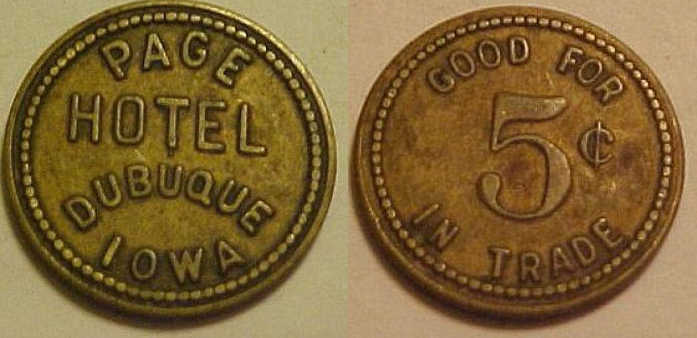
---
Source:
1. McDougall, Tom, "The End of an Era," Telegraph-Herald, December 31, 1968, p. 3
2. "Caught on the Fly," Dubuque Daily Herald, March 1, 1895, p. 8
3. Mrs. Catherine Page, e-mail, July 19, 2015
4. McDougall




